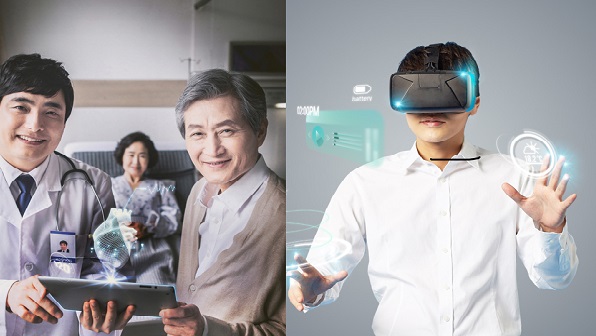The number of patent applications using augmented reality (AR) or virtual reality (VR) for medical use has shot up in the past six years, government data showed.
The Korean Intellectual Property Office (KIPO) on Tuesday released its analysis on patent application trends related to AR/VR-using medical technologies between 1998 and 2017.

According to KIPO, the total number of AR/VR-related patent applications stood at 277 in the past 20 years. In the last six years, in particular, the number of such patent applications jumped by 49.4 percent every year on average.
The applications started to surge in 2015 in earnest. The number of related applications went up from 13 in 2014 to 29 in 2015, to 58 in 2016, and 82 in 2017.
By type, patent applications for “patients’ rehabilitation treatment” recorded 81, followed by those for “training of medical professionals” with 45, those for “surgery” with 38, those for “health management” with 36, and those for “diagnosis” with 32.
KIPO unveiled examples of approved patents including SolidEng’s “next-generation navigation solution,” which provides the position and direction of the surgical instruments. Another is Surgical Theater’s “surgical navigation advanced platform.”
By the patent applicant’s nationality, 89.9 percent of them were locals (249), and the other 10.1 percent were foreigners.
KIPO attributed the increase in AR/VR-based patent applications to the expansion of the state R&D supports, following the 2016 government’s selection of nine national strategy projects.
“People are using AR and VR more to solve problems such as increasing chronic diseases, population aging and lack of skilled workers, and to provide more efficient services,” KIPO said.
KIPO forecast that the AR/VR healthcare technology market would grow rapidly to a size of $26.3 billion in 2022, adding that “it was urgent for Korean firms to secure advanced technologies first.”
“The medical technology sector is pouring out various AR/VR-related services, and the demand will increase explosively,” said Yang In-su, head of the medical technology review team at KIPO. “Korean firms should pay attention to developing advanced technologies to occupy the AR/VR medical technology market first and registering patents to protect their technologies.”

